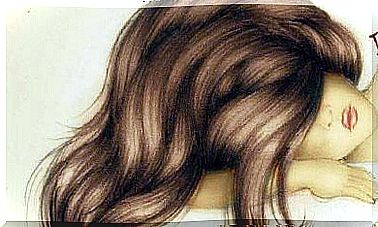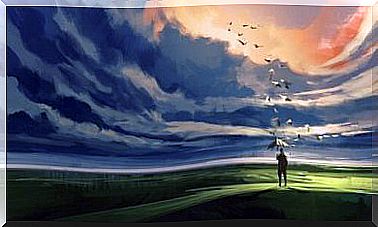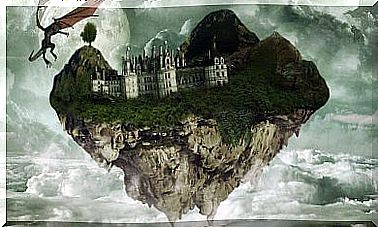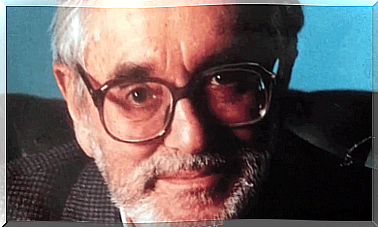5 Wonderful Buddhist Micro-stories That Will Make You Wiser

“Buddhism” comes from the word “buddhi”, which means to awaken . For this reason, Buddhist philosophy considers itself to be the philosophy of the “awakening process”.
A process by which we not only open our eyes, but also the rest of our senses and our intellect completely using different means. Micro-stories are one of them.
In this article, you will find 5 Buddhist micro-stories inviting you to put aside apathy, develop greater understanding and become a wiser person.
We hope you enjoy these little stories and feel the wisdom they exude.
The cup of tea
Nan-In, a 19th century Japanese master, once received a visit from an American university professor who wanted to learn about Zen.

While Nan-In silently brewed tea, the professor displayed his own philosophical views at leisure.
When the tea was ready, Nan-In began to pour the hot brew into the visitor’s cup, very slowly.
The man was still talking and Nan-In continued to pour the tea until the cup overflowed.
Alarmed at the sight of tea spilling onto the table, ruining the tea ceremony, the professor exclaimed, “But the cup is full!” It will not contain any more! “
Quietly, Nan-In replied, “You are like this cup, already full of beliefs and preconceived ideas. How could I talk to you about Zen? To be able to learn, start by emptying your cup! “.
The first of these little Buddhist stories teaches us that with a mind full of prejudices, it is impossible to learn and consider new beliefs.
It is necessary to “empty” old precepts and to open up to new learning.
Gift
Once upon a time there was a religious who left his home and left his riches to teach the Way. This man was called the Buddha.
One day while speaking in a public square, a man approached to listen to him.
He had heard that the Buddha always had great love and benevolence for sentient beings.
The Buddha’s kindness annoyed this man, so he began to curse him.
But the Buddha remained peaceful.
He listened to this listener who howled more and more.
When he had finished and he regained his composure, the Buddha asked him: – If you give a gift to a man and this man does not want it, what do you do with this gift?
– I’ll take it back!
– In the same way, if you address insults to a person and that this one does not receive them, you can win them because the one who does not receive your gift cannot be shaken.
Whoever throws dust against someone in the direction opposite to the wind does not dirty the adversary but his own body.
Likewise, when one does a bad deed, it is to oneself that one does harm.

The two monks and the beautiful young woman
Two Zen monks were about to cross a river. They met a very beautiful young woman who also wanted to cross, but she was afraid. So one of the monks took her on his shoulders and carried her to the other side.
His comrade was furious. He didn’t say anything, but he was seething inside: it was forbidden! A Buddhist monk was not to touch a woman. And not only had he touched her, he had carried her on his shoulders.
The kilometers passed. When they reached the monastery, crossing the door, the angry monk turned to his companion and said:
– Well, I will have to speak about this matter to the Master and tell him everything. What you have done is forbidden!
The first monk was surprised:
– What are you talking about, what is forbidden?
– Have you forgotten? asked the second. You carried this beautiful young woman on your shoulders!
The first monk laughed and said:
– Yes, I carried it.
But I left her by the river, miles back. But you, are you still wearing it!
This third Buddhist story helps us understand that sometimes we get stuck with the past, with feelings of guilt or resentment and that we often give them more importance than what actually happened.
By accepting that the incident is not part of our present, we can take a great emotional weight off our shoulders.
Intelligence
One evening, Rabiya was examining the ground in front of his cabin.
– What are you looking for, Rabiya? asked the neighbors.
“I lost my needle,” replied the old woman.
The neighbors began to search with her. Someone says:
– Rabiya, it’s going to be dark, we won’t have time to comb the whole street. Try to remember where you dropped that needle.
– I lost it at home, in my house, was the answer.
– But then, wondered the neighbors, why look in the street?
– Because here there is light, explained Rabiya, while at my place it is dark.
– Come on, Rabiya, someone protested, even with light you won’t find a needle that is not there. Rather go home and turn on the lamp!
Rabiya laughed:
– You are very smart when it comes to trivial things! When will you use your intelligence to live in depth? I see you all looking outside for what you have lost inside.
Do you think you can find bliss in the outside world? So have you lost it somewhere outside of yourself?
Rabiya planted her sheepish neighbors there and went home.
This Buddhist account reminds us that often, for convenience, we look outside for what lies within us.
Why do we seek so much happiness on the outside? Maybe we lost it there?
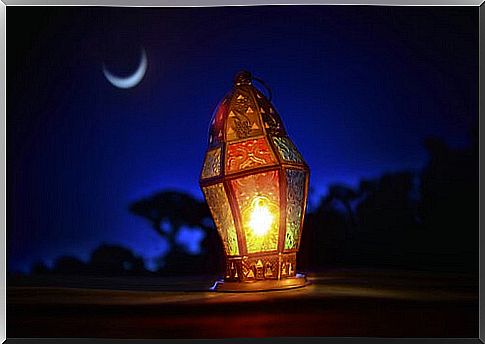
We are not the same
At the time, no one was more benevolent and compassionate than Buddha. Among his cousins was Devadatta, who was always jealous of the master and always went out of his way to ensure that he ended up in the wrong place at the wrong time, willing to murder him.
One day when Buddha was walking quietly, his cousin Devadatta threw a large stone at him from the top of the hill. She fell next to Buddha and Devadatta therefore failed to take her life.
Buddha, realizing what had just happened, remained impassive, without even losing his smile.
The next day, Buddha passed his cousin and greeted him affectionately. Very surprised, Devadatta asked him: “Are you not mad at me?”. “No, of course not,” Buddha assured him.
Amazed, Devatta added: “Why?”, And Buddha replied: “Because it was not you who threw the stone and it was not me who was there when it was thrown”.


